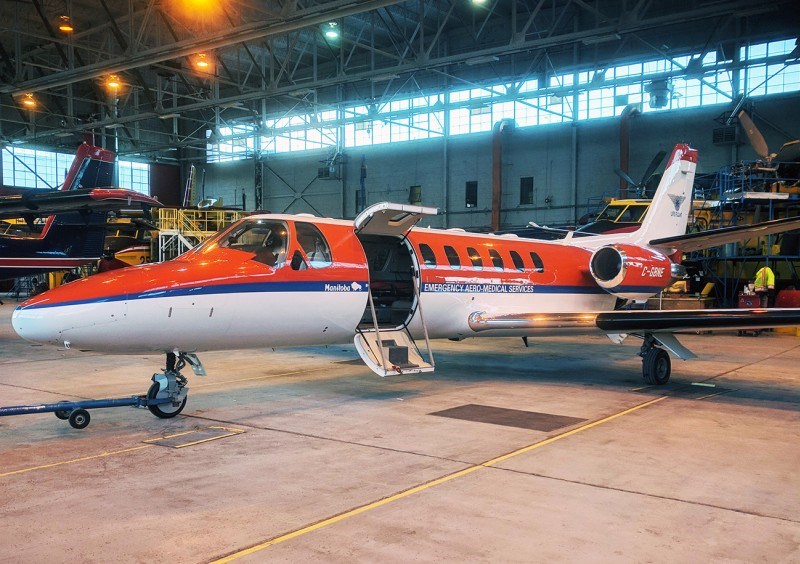A Northern Manitoba NDP MLA is asking the province’s chief medical examiner to launch an inquest into the death of a man who waited 12 hours in The Pas for an air ambulance to transport him to an intensive care unit in Winnipeg where he died three days later.
Gordon Jebb had a heart attack July 2 and was taken to hospital in The Pas where he fell into a coma and was placed on life support. He was flown to Winnipeg 12 hours later on a plane staffed with three health care workers but died July 5.
The Pas NDP MLA Amanda Lathlin says an inquest is needed to determine the role that privatization played in Jebb’s death and the risk posed by the provincial government’s decision to ground government-owned Citation jets and rely on Beechcraft King Air 200 planes provided by a private company for Lifeflight flights, which are used to transport patients from more than 200 kilometres away to Winnipeg for medical treatment.
“He was a much-loved member of our community whose death is a tragic consequence of Brian Pallister’s plan to starve and privatize Manitoba Lifeflight service,” said Lathlin in a press release.
The provincial government announced June 6 that the Lifeflight air ambulance program would no longer be using two government-owned Citation jets as early as sometime in June. The province said this was because recruiting for highly specialized positions related to operating these jets is difficult due to the specific training and qualifications required along with significant competition from private-sector employers. The government-owned jets were used in about half of all air ambulance flights in 2018. The province announced last summer that it had issued a request for proposals (RFP) for private companies to provide air services, including air ambulance services, to the government to see if they could be provided more cost effectively or with a higher level of service.
Jebb’s dautghter Chenae Bear said in a statement that she felt her father died because he was denied his right to receive immediate medical attention.
“No one in Canada should have to wait 12 hours after suffering a heart attack, or any life-threatening event, for a flight while their life is on the line,” Bear said. “The sad fact is that my father’s death is the direct repercussion of Pallister’s move to strip away Lifeflight and he may have had a greater chance of survival if a strong public service was available.”
Opaskwayak Cree Nation Chief Christian Sinclair said he supported Lathlin’s call for an inquest.
“Why did it take 12 hours for a man who just suffered a serious heart attack to sit and wait idle before he was flown to Winnipeg for medical care?” Sinclair said.
Doctors Manitoba, the association that represents physicians in this province, sent a letter to members July 9 outlining concerns with the Beechcraft King Air 200 being used for Lifeflights on a six-month contract, the Winnipeg Free Press reported.
“The replacement plane is a considerably slower plane, meaning that physicians will experience serious delays in triaging, delivering and receiving critical care, which will have an adverse effect on patient outcomes,” wrote Doctors Manitoba president Fourie Smith, who added in a follow-up statement to media that Doctors Manitoba members are continuing to work with Lifeflight despite knowing that “they are still constrained from providing the high-quality critical care that patients need.”
Doctors had refused to board the new planes for a two-week period in late June and early July but are now providing services again and taking test flights and becoming familiar with the new type of plane.
“Our ongoing engagement of Lifeflight physicians, as well as our agreement in making changes that respond to their concern, has demonstrated that commitment [to address concerns],” Health Minister Cameron Friesen told the Free Press in a statement.
Lifeflight medical director Renate Singh told the Free Press that doctors had requested the installation of lifts to help staff get patients onto the planes. She said doctors were satisfied that some of their safety concerns have been addressed and that, while the current aircraft is “sub-optimal for provision of critical care services,” doctors were trying to ensure that the Lifeflight service is as safe as it can possibly be.




